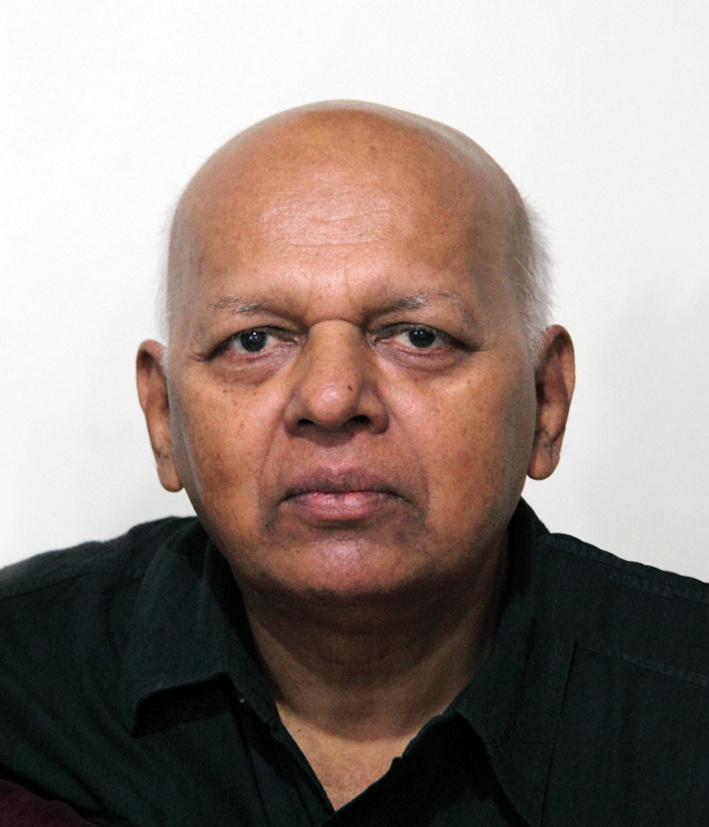Anti-people laws enacted during last ten years!
By M.Y.Siddiqui
RSS Pariwar union government and Sangh Pariwar ruled states have enacted various laws that are anti-people and unconstitutional during the last ten years since 2014. These laws are draconian and have conditioned police, bureaucracy and judiciary to violate people’s fundamental rights guaranteed by the Constitution of India with impunity. As a result, country has transformed into an electoral dictatorship. Primary function of Parliament is to legislate. When people elect members to the House of the People (Lok Sabha), we are choosing who will write and pass our laws. In our country, laws are now passed without public scrutiny and without debate, both at the Union and State levels, meaning the parties that have majority and an ideology can legislate what they want without pushback. As we elect a government for the next five years, a look at the laws enacted and amended in the decade are regressive, anti-democratic and anti-people.
The Right to Information (Amendment) Act, 2019 gives the Union government powers to set the salaries and service conditions of information commissioners at Union and State levels. Instead of fixed terms, commissioners can be appointed on arbitrary conditions and salaries. With this, India fell from second place in global RTI readings in 2014 to ninth place in 2024.
The Unlawful Activities (Preventive Amendment) Act, 2019 empowers the state, both Central and State governments,) now categorises any individual as a terrorist as against the earlier situation when UAPA only allowed organisations categorized as terrorist. The individuals categorized, as terrorist need not even have any affiliation with any of the 36 terrorist organisations mentioned in the draconian law to be classified as terrorists, and then jailed.
The Karnataka Education Act (1983) Order of 2022 bans Muslim women and girls from covering their heads in schools and colleges that had uniforms. Even in colleges, which did not have a prescribed uniform, the covering heads by Muslims was prohibited because ‘clothes which disturb equality, integrity, and public law and order should not be worn’. Sikhs were excluded from the order.
The Maharashtra Animal Preservation (Amendment) Act, 2015, after Prime Minister’s speech against what he called the ‘pink revolution’, empowers the state government to criminalise the possession of beef. This law was emulated as a copycat law by BJP ruled states. This law also heralded a series of violent attacks the media named ‘beef lynching’. Anyone accused of having a beef sandwich can be jailed for five years.
The Haryana Gauvansh Sanrakshan and Gausamvardhan Act, 2015, provides for possession of beef with a punishment up to five years in jail. In this law, the burden of proof is on the accused.
The Gujarat Animal Prevention (Amendment) Act, 2017, extends punishment for cow slaughter to life in prison. No other economic offence attracts life imprisonment. This law equals cow slaughter with murder.
The Uttar Pradesh Recovery of Damage to Public and Private Property Act, 2020, enacted after U.P. police shot dead 21 people protesting against CAA (The Citizens Amendment Act), gives the government the power to set up tribunals to decide damage to any public or private property owing to riots, hartals, bandhs, protests or public processions. The law also states that all orders passed by the tribunals will be final and cannot be appealed before any court, in terms of the law’s Section 22.
The Uttarakhand Freedom of Religion Act, 2018, the first of seven state laws introduced and legislated by the BJP after the conspiracy theory of ‘love jihad’ began to be circulated. It criminalises marriages between Hindus and Muslims if conversion is involved. However, any person comes back to his ancestral religion, then this shall not be deemed conversion. Those who change their faith without applying to the government in the “prescribed proforma” and without the consent of the government, after the police inquiry, face jail.
The Himachal Pradesh Freedom of Religion Act, 2019, similar to the Uttarakhand Act, provides punishment for propagation (a fundamental right under Article 25 of the Constitution of India) is seven years in jail. The Uttar Pradesh Vidhi Virudh Dharma Samparivartan Pratishodh Adhyadesh, 2020, similar to the previous laws, prohibits conversion except with government permission and 60 days notice. Similar laws enacted by BJP ruled states are: the Madhya Pradesh Freedom of Religion Act, 2021, the Gujarat Freedom of Religion (Amendment) Act, 2021, the Karnataka Protection of Right to Freedom of Religion Act, 2022, and the Haryana Prevention of Unlawful Conversion of Religions Act, 2022.
The Temporary Suspension of Telecom Services (Public Emergency or Public Safety) Rules, 2017, gives the Union and state governments power to suspend, for any reason, mobile and Internet services. India is the world’s leader in Internet shutdowns in 2019. India accounted for 56 percent of total shutdowns, 12th times more than the next nation, Venezuela. Of the 155 global shutdowns in 2020, India accounted for 70 percent of the world’s total.
The Gujarat Prohibition of Transfer of Immovable Property and Provision of Protection of Tenants from Eviction from Premises in Disturbed Areas Act, 2019, bans Hindus and Muslims from buying or renting properties from each other without the government’s permission. The government will determine if the sale of property may lead to the likelihood of polarization or improper clustering of people from a particular religion. It also confers on the government the power to undo transactions even if the buyer and seller make no appeal. In effect, even foreigners can lease and buy property in those parts of Gujarat’s cities where Indian Muslims cannot.
It is worrisome that most of the aforementioned laws have remained in the statute book even after the state governments that legislated them have been unseated. These laws have a long term deleterious effect as these subvert the basic idea of India, its diversity and the time tested basic tenets of the Constitution of India postulating justice, liberty, equality and fraternity as such laws have conditioned the police, civil administration and judiciary in flagrant violations of the rule of law based system of the constitutional democratic governance where human rights of the people, who are sovereign masters of the government they elect, are violated by the official machinery with impunity!
Powered by Froala Editor




LEAVE A REPLY